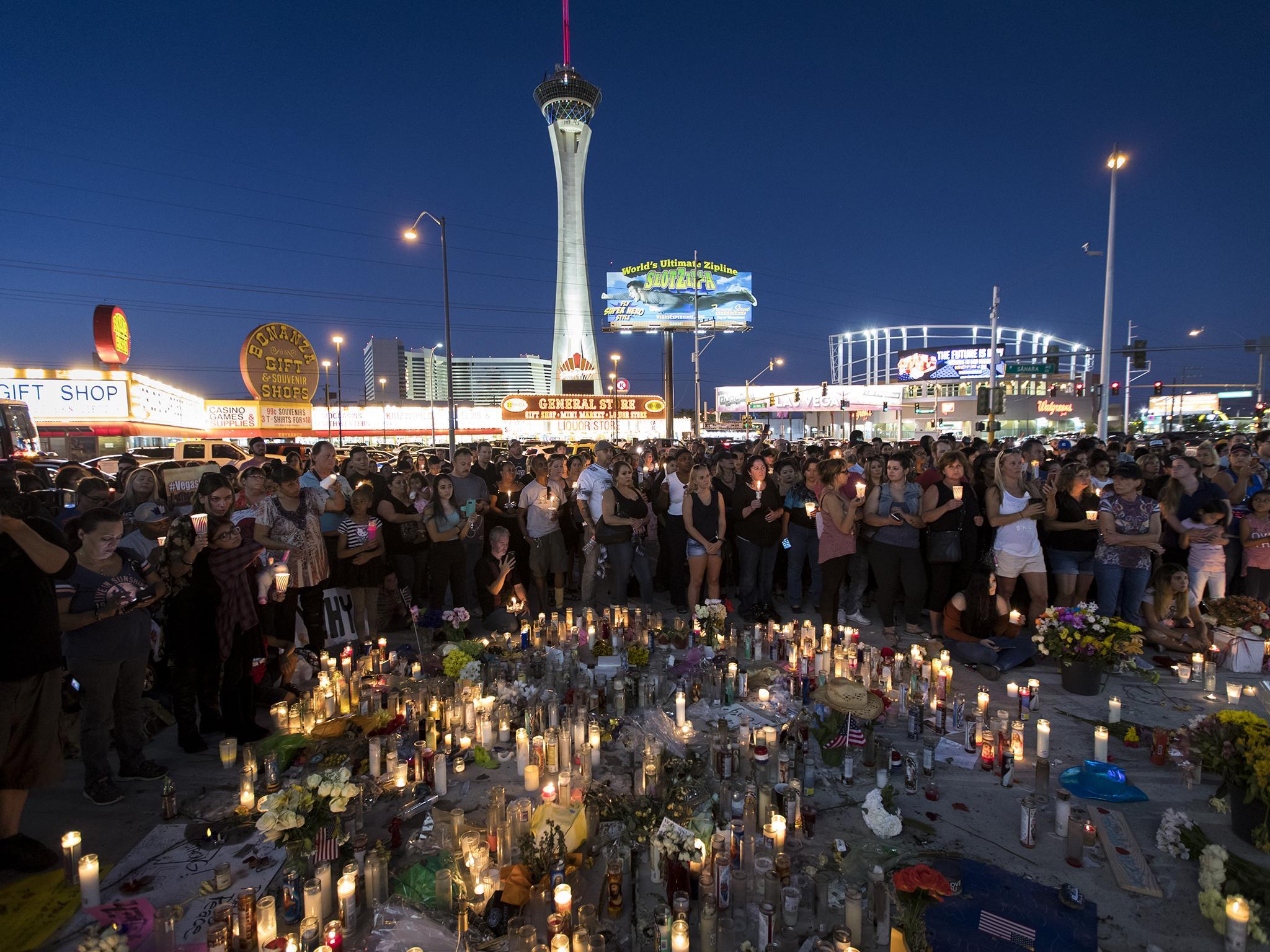For first time since Columbine most Americans say mass shootings can be stopped
Shift marks strong change among Republicans, with 52 per cent believing further incidents can be prevented

Your support helps us to tell the story
From reproductive rights to climate change to Big Tech, The Independent is on the ground when the story is developing. Whether it's investigating the financials of Elon Musk's pro-Trump PAC or producing our latest documentary, 'The A Word', which shines a light on the American women fighting for reproductive rights, we know how important it is to parse out the facts from the messaging.
At such a critical moment in US history, we need reporters on the ground. Your donation allows us to keep sending journalists to speak to both sides of the story.
The Independent is trusted by Americans across the entire political spectrum. And unlike many other quality news outlets, we choose not to lock Americans out of our reporting and analysis with paywalls. We believe quality journalism should be available to everyone, paid for by those who can afford it.
Your support makes all the difference.A poll released this week shows striking evidence of a shift in American attitudes towards mass shootings: nearly two-thirds of adults now believe that mass shootings can be prevented, the first time since Columbine, Colorado, that a majority of Americans have felt that way.
The survey by CNN suggested the Parkland, Florida, shooting is changing the public attitudes about gun violence in a way that other recent killings have not.
As recently as the summer of 2015, when nine black parishioners were shot to death by a white supremacist in a Charleston church, fewer than 40 per cent of Americans said that government or society could do anything to stop the shootings.
Just four months ago, when 58 people were killed and hundreds more injured in a shooting in Las Vegas, a plurality of respondents told pollsters that government and society were essentially powerless to stop these incidents.
Today, however, 64 per cent of Americans said that “government and society can take action that will be effective in preventing shootings like the one in Parkland, Florida, from happening again.” Just 32 per cent say shootings like Parkland “will happen again regardless of what action is taken by government and society.”
The question has referenced different shootings each time it’s been asked, so some of the variation in responses to it likely reflects the differences between those shootings: venue, victims, shooters and other individual circumstances.
But, the numbers nonetheless reflect the contours of a political routine we’ve all become familiar with: a national tragedy, followed by outrage, prayer and calls for action. Ultimately, however, federal firearm policy remains unchanged, an outcome driven in large part by congressional Republicans‘ vehement opposition to substantive regulations on gun ownership.
In the past, some red-state Democratic senators, such as North Dakota’s Heidi Heitkamp and West Virginia’s Joe Manchin, have also been instrumental in voting down new gun control policies.
The recent shift in the public’s attitudes, however, is primarily concentrated among Republicans. In October, following the Las Vegas shooting, just 24 per cent of Republicans said that “government and society can take action that will be effective in preventing shootings.”
This month, following the school shooting in Parkland, in which 17 students and educators were killed and 14 more were injured, Republican belief that government and society can stop mass shootings jumped by nearly 30 percentage points, to 52 per cent.
The CNN poll shows strong Republican support for at least two specific gun control proposals. Ninety per cent said they support a prohibition on gun purchases by convicted felons or people with certain mental health issues. The question, however, didn’t define what mental health issues would qualify for this policy.
More than 60 per cent of Republicans also support raising the age limit to 21 for all gun purchases, including rifles. Currently, federal law sets an age limit of 21 for handgun purchases from licensed dealers and a limit of 18 for rifles. Because of that, the Florida school shooter had been able to legally obtain the military-style rifle used in the shooting despite being only 19.
Nearly half of Republicans favour a ban on magazines capable of holding more than 10 rounds. Over one third support a ban on all semiautomatic rifles, a measure that would be more restrictive than the 1994 assault weapons ban, which only outlawed certain types of semiautomatic rifles. A limit on the number of guns individuals could own is even less popular among the party's voters.
The CNN survey also traces how public response to mass shootings has become more polarised over time. From 2000 through to at least 2005, Democrats and Republicans were separated by fewer than 10 percentage points on the question of whether government and society can take steps to stop mass shootings.
But following the shooting of US Republican Gabby Giffords and 18 other individuals at a 2011 political event, that began to change. The gap between Democrats and Republicans grew to larger than 20 points following that shooting, surpassed 30 points following the Sandy Hook school shooting in Connecticut and hit a peak of 44 points following the Las Vegas shooting in October.
Following the Parkland shooting the gap has narrowed down to 27 points, still a formidable divide. Whether the shared belief that mass shootings can be stopped represents a brief moment of unity or a more durable trend will likely depend, on large part, on whether Congress is actually able to pass any meaningful legislation to address the violence.
The Washington Post
Join our commenting forum
Join thought-provoking conversations, follow other Independent readers and see their replies
0Comments